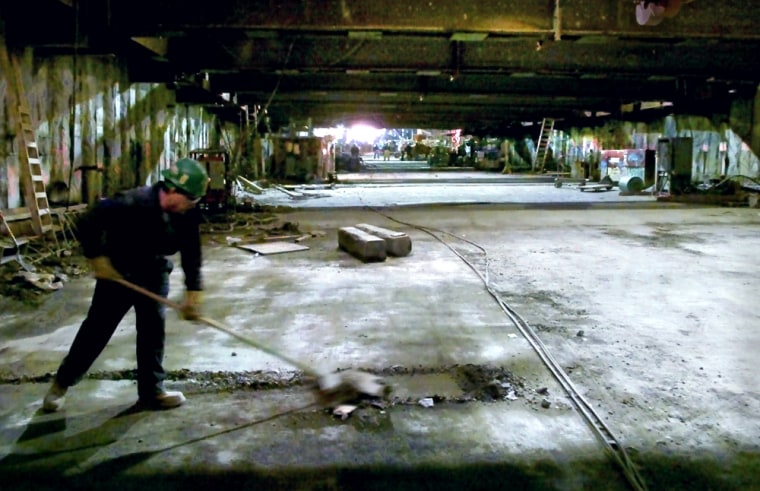The Big Dig highway project in downtown Boston is riddled with leaks dumping millions of gallons of water into the $14.6 billion tunnel system, according to an engineer hired to investigate the cause of a massive leak in September.
Fixing the hundreds of leaks could take up to 10 years, said Jack K. Lemley, a consultant hired by the Massachusetts Turnpike Authority to investigate the problem.
Lemley told the Boston Globe for a story in Wednesday editions that repairing September’s leak would require two months and include traffic lane closures. The last major leg of the Big Dig project opened less than a year ago.
The engineers also said they found documents showing that managers of Bechtel/Parsons Brinckerhoff, the private consortium that managed the project, were aware that the wall breached this fall was faulty when it was built in the late 1990s, but did not order it replaced and did not notify state officials.
The Globe reported that as a result, retired judge Edward M. Ginsburg, appointed by the state last year to lead the team reviewing the project for overcharges by contractors, is talking to Attorney General Thomas F. Reilly about filing a lawsuit targeting Bechtel and Modern Continental, the contractor that built the wall section that leaked in September.
“I can honestly say we were shocked,” Ginsburg said. “I can assure you we’re going to make sure there is a thorough investigation.”
Tunnels are structurally sound
The tunnels remain structurally sound, and the project’s drainage system is keeping water away from the roadway, Lemley said.
Bechtel/Parsons Brinckerhoff said it would be inappropriate to comment on specific allegations while the September leak is under investigation.
“In a tunnel of this construction type, seepage is inevitable, but is mitigated by proper engineering and maintenance programs, which have been planned for and are in place,” the statement said.
Ginsburg said his team will demand that the construction contractors fix the problem at no cost to taxpayers. He could not estimate the cost.
Jordan Levy, a member of the Turnpike Authority board, called for an emergency meeting of the board this week and suggested Bechtel should be investigated for possible criminal wrongdoing.
Either the Bechtel project was incompetent or there was “malfeasance at the highest level,” Levy said. He added that tax dollars would be spent to fix the problem “over my dead body.”
The September leak was the latest in a series of embarrassing episodes in the two-decade construction. In January, ice formed in the tunnels, forcing officials to close lanes and jamming up traffic. And in 2001, a leak spouted from under one of six concrete tubes being put in place to carry Interstate 90 through the Fort Point Channel.
The Big Dig replaced the elevated Central Artery of Interstate 93 with underground tunnels through downtown Boston. It also connected Interstate 90 — the Massachusetts Turnpike — to Logan International Airport, and added the Ted Williams Tunnel beneath Boston Harbor.
